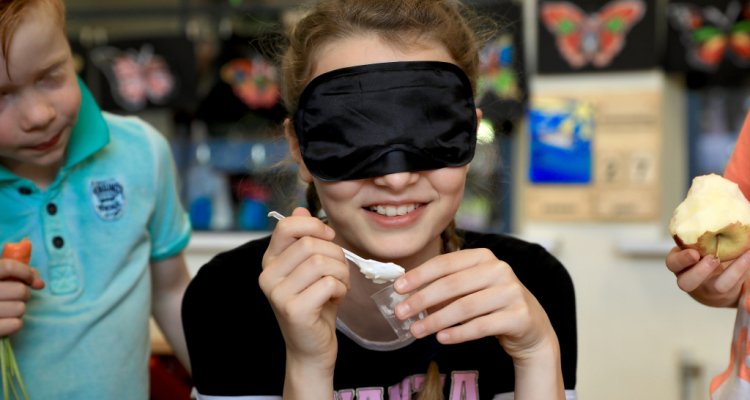Wageningen University & Research’s ‘Taste Lessons’ accredited effective by the Centrum Gezond Leven of the RIVM
The Taste Lessons (‘Smaaklessen’) learning programme by Wageningen University & Research has again been accredited by the Centrum Gezond Leven of the RIVM. The learning programme – which is assessed every five years for quality, feasibility and effectiveness – has received the accreditation ‘Initial indications of effectiveness’. This accreditation was obtained based on the results of three Dutch impact studies.
Taste Lessons is a learning programme for primary schools about food in which the focus is on food experience. Children explore and experience their food in a playful way by tasting, feeling, hearing, smelling, and looking at the food. Taste education for food and nutrition provides children with the knowledge and skills that they need to make conscious, healthy food choices now, as well as later in life.
Effectiveness
The programme was rated again at the level of ‘First indications of effectiveness’. The Centrum Gezond Leven (RIVM) provided this assessment. They assess lifestyle interventions based on an accreditation process. This involves independent experts who determine the quality, effectiveness and feasibility of interventions. All accredited interventions can be found in this intervention database. Taste Lessons is the only national programme at the level of ‘First indications of effectiveness’.
The assessment committee found the programme affected aspects such as taste development, daring to try (new) products and knowledge of healthy and sustainable foods. The learning programme has been supplemented with a ‘Taste Mission’, which is an interactive learning module that focuses on a theme or a primary product group, such as food waste, vegetables, meat or dairy. The committee assessed this as being promising for further increasing the curriculum’s effectiveness: “Taste Lessons is a fun and accessible programme that does not break the bank. The execution is well worked out, and there is plenty of room for flexibility.”
Learning programme development
Over the course of the last few years, the content and the implementation of Taste Lessons has been developed further, allowing the programme to be offered in a cutting-edge digital environment, through the learning portal Chef! This means primary schools can use the learning programme more flexibly and can compose their own curricula. There are currently over 20,000 accounts on the learning portal, and more than 75% of primary schools are working with Taste Lessons.
The Taste Lessons learning programme has also been entrenched in the EU School Fruit Programme for several years. Participating schools get access to all of Taste Lessons’ educational materials as well as weekly fruit and vegetable deliveries.
In the coming years, the goal is to further increase the Taste Lessons programme’s impact and implementation. Effort will be put into increasing primary schools’ usage of Taste Lessons and improving the connection with existing food education initiatives to increase its impact. The programme is kept current and its content enhanced based on technological and societal developments. An alternative version of Taste Lessons is also being developed for special education.

